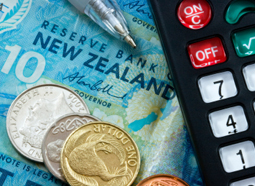Ten things to consider before moving overseas
If you’re thinking of working or retiring overseas, there are a number of considerations to take into account.
Visa
Getting the right paperwork can sometimes be tricky, if you want to work, you often need to be sponsored by your workplace or have a skill which is in demand. Check the lists of the skilled occupations in demand for your chosen country regularly as they often change to reflect the needs of the economy.
You may also wish to consider moving somewhere more remote. It may be easier to get a visa to such a location as there are likely to be skills shortages, for example in Nova Scotia, Canada.
Those looking to retire abroad usually have to prove that they are wealthy enough to support themselves or be sponsored by a local resident.
Health
While a warmer climate may be better for your health, the cost of health care can be significant, especially in North America. In the European Union, you will need to apply for a European Health Insurance Card (EHIC) to receive emergency treatment at a reduced cost or sometimes for free. In Australia, Medicare is the publicly funded scheme which exists alongside a private health system.
Having health insurance is often a condition of being granted a visa. It also pays to be aware of the rules and regulations for individual countries – for example, tough new regulations in Spain mean that some expats taking early retirement there have been blocked from free medical treatment.
Property taxes
When buying a new home overseas, check the cost of tax and legal fees which can often add 6-10 per cent to the purchase price. There are also ongoing taxes which vary depending on the region.
Capital Gains Tax
Prepare yourself for capital gains tax (CGT) on any profit you’ve made when you come to sell your home.
Foreign exchange
Not only will you need to change a lump sum into your new local currency, but you may need to transfer money regularly between the two countries, perhaps for education fees or a pension. Foreign currency brokers charge lower fees and offer better exchange rates than using your UK bank.
Cost of living
Look into the living costs before deciding which country to settle in. Although property prices abroad are often cheaper than in the UK, day-to-day living may be the same or more expensive. Check out the cost of food, petrol, entertainment and energy.
Remember that living in a tourist area will be pricier than less popular areas. And don’t assume the exchange rate will stay the same. The pound has risen strongly against the South African rand and the US dollar in the last year. You can protect yourself against currency fluctuations by fixing the rate you’ll receive with a forward contract for up to 24 months ahead.
Accessibility
You may wish to return to the UK occasionally and family and friends will like to visit you. Look at the cost of flights and consider how close you are to an airport.
Inheritance rules
If you are sinking most of your savings into a property abroad, check the inheritance laws. Speak to an international solicitor to make sure you can leave your assets to your family as you wish and find out about inheritance tax.
Language
Canada, Australia, New Zealand, South Africa and the US are popular places to settle overseas because English is the common language. But if you’re going to a non-Anglophone country, learning the local language will be an enormous advantage. It not only makes it easier to socialise, but helps if you need to go to the doctor or deal with estate agents and solicitors.
Related Stories
